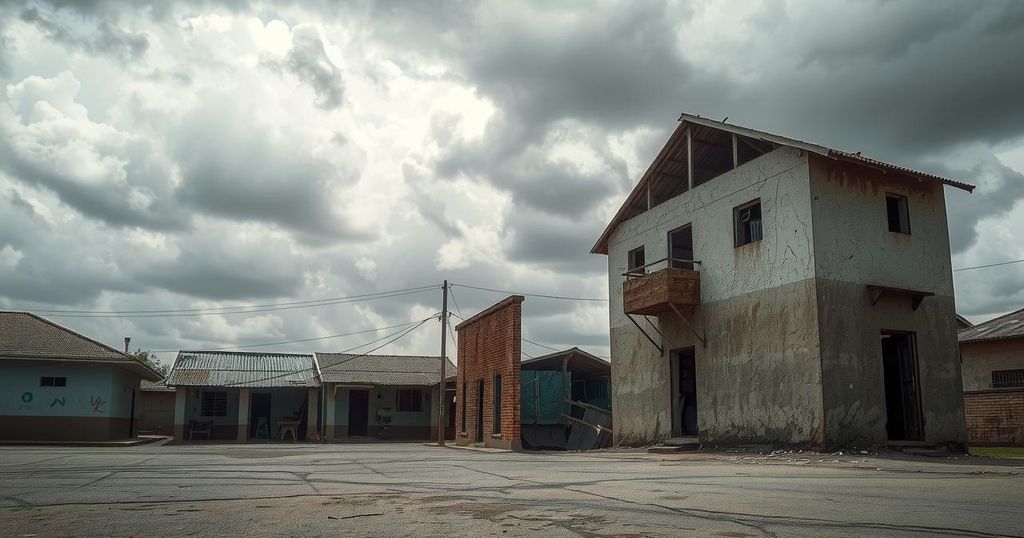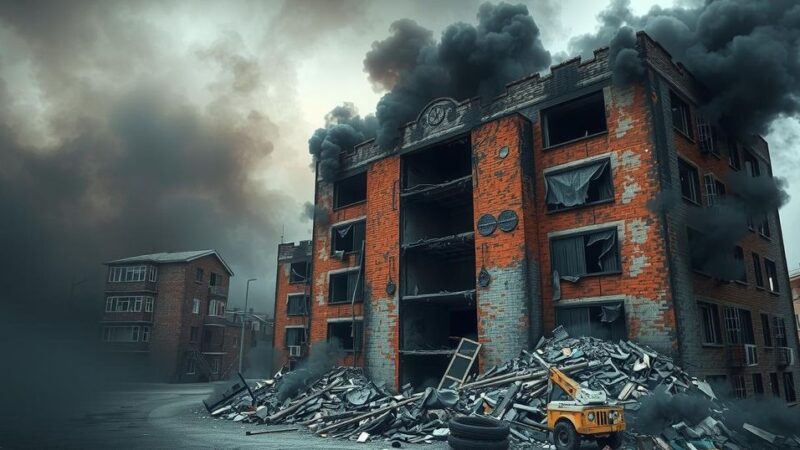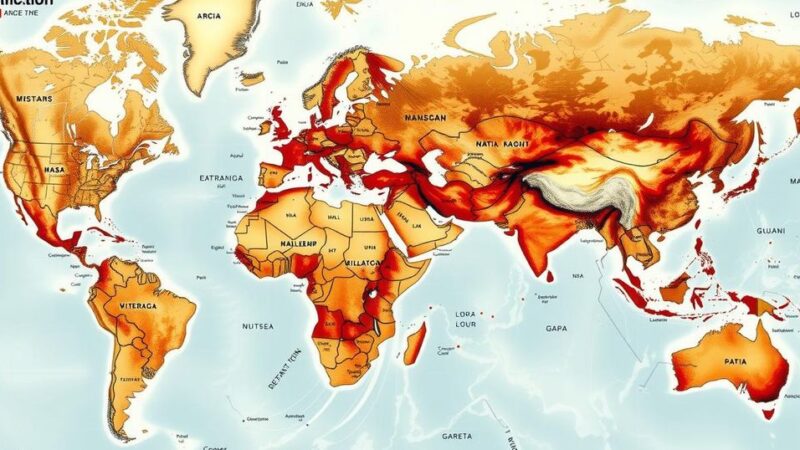An air strike in Nasir, South Sudan, killed at least 19 people, creating further unrest following recent ethnic militia clashes. Accusations against political leaders complicate the situation, as foreign troops are also involved in stabilizing efforts. Tragic casualties emphasize the need for peace in a region facing instability.
An air strike carried out by South Sudan’s airforce resulted in the deaths of at least 19 individuals in the eastern town of Nasir. This incident occurred shortly after government forces withdrew from the region, following intense conflicts with an ethnic militia known as the White Army. These clashes had the potential to reignite the devastating civil war that raged from 2013 to 2018, claiming countless lives.
The South Sudanese government has accused First Vice President Riek Machar, who hails from the Nuer ethnic group, of collaborating with the White Army. This group had previously allied with Machar’s forces during the civil war against the predominantly Dinka military supporting President Salva Kiir. Machar’s party has firmly denied any connections to the militia.
On March 7, approximately 27 soldiers, including a general, were killed when a UN helicopter came under attack while attempting to evacuate them from Nasir. South Sudan’s Information Minister, Michael Makuei, confirmed that the air force conducted a bombing raid in Nasir on Monday morning. Eyewitnesses from the area report that the air strike occurred late Sunday night, with 15 individuals dying instantly and others later succumbing to their injuries.
Local community leader Kang Wan described the aftermath of the attack, noting, “All of them they got burned, everything got burned”. Meanwhile, Medecins Sans Frontieres reported that their hospital in nearby Ulang treated three patients wounded in the air strike, two of whom died upon arrival due to severe burn injuries.
Commissioner James Gatluak Lew of Nasir County, who supports Machar, suggested that the air force’s actions were likely retaliatory, following the previous helicopter attack on government troops. Recently, Uganda announced the deployment of special forces in South Sudan’s capital, Juba, to stabilize the area. While the South Sudanese government initially denied the presence of Ugandan troops, Makuei later confirmed that certain units were in the country to support the national army as needed.
The recent air strike in Nasir, South Sudan, has exacerbated tensions in a region already facing the potential for renewed violence. With accusations against political figures and the involvement of foreign military forces, the situation remains precarious. The tragic loss of life underscores the ongoing conflict and instability in South Sudan, highlighting the urgent need for diplomatic resolution and peacekeeping efforts.
Original Source: www.canberratimes.com.au






